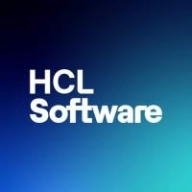

| Product | Market Share (%) |
|---|---|
| Defensics Protocol Fuzzing | 18.3% |
| PortSwigger Burp Suite Professional | 32.7% |
| GitLab | 26.7% |
| Other | 22.299999999999997% |
| Product | Market Share (%) |
|---|---|
| HCL AppScan | 2.2% |
| SonarQube | 16.9% |
| Checkmarx One | 9.9% |
| Other | 71.0% |

| Company Size | Count |
|---|---|
| Small Business | 14 |
| Midsize Enterprise | 6 |
| Large Enterprise | 31 |
Defensics® fuzz testing is a comprehensive, powerful, and automated black box solution that enables organizations to effectively and efficiently discover and remediate security weaknesses in software. By taking a systematic and intelligent approach to negative testing, Defensics allows organizations to ensure software security without compromising on product innovation, increasing time to market, or inflating operational costs.
IBM Security AppScan enhances web application security and mobile application security, improves application security program management and strengthens regulatory compliance. By scanning your web and mobile applications prior to deployment, AppScan enables you to identify security vulnerabilities and generate reports and fix recommendations.
We monitor all Fuzz Testing Tools reviews to prevent fraudulent reviews and keep review quality high. We do not post reviews by company employees or direct competitors. We validate each review for authenticity via cross-reference with LinkedIn, and personal follow-up with the reviewer when necessary.